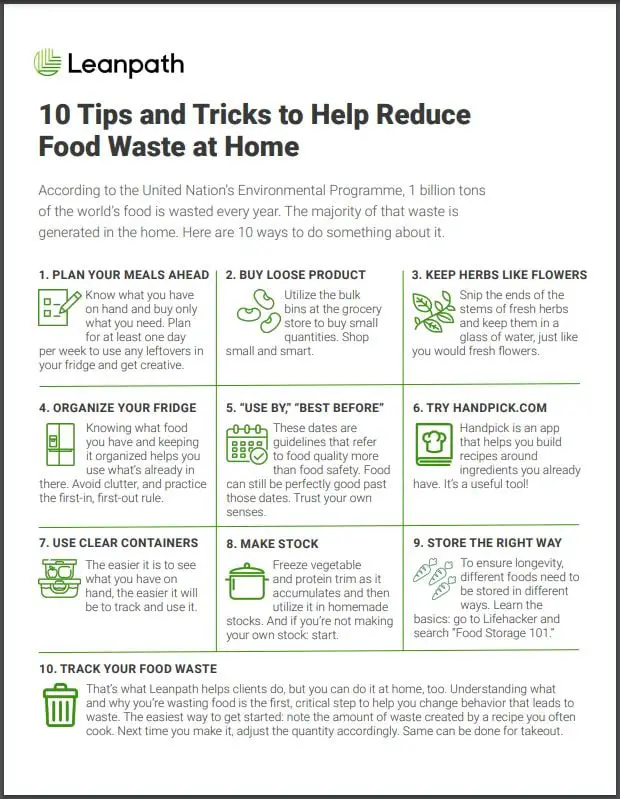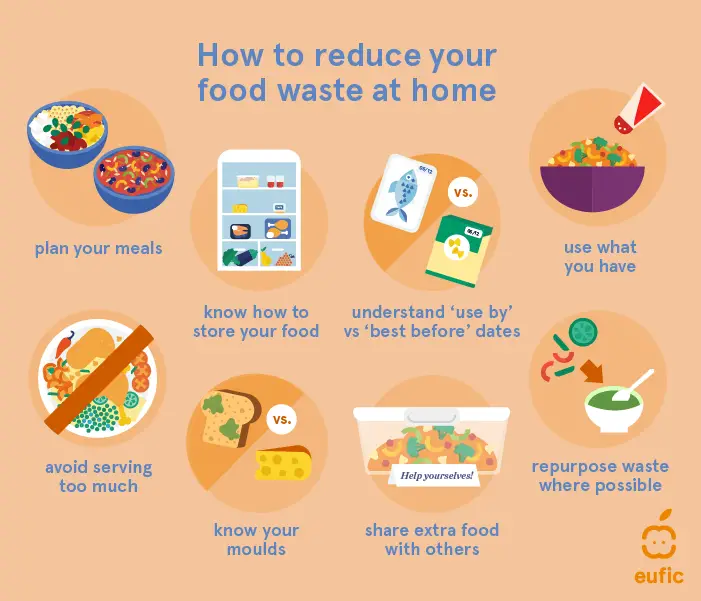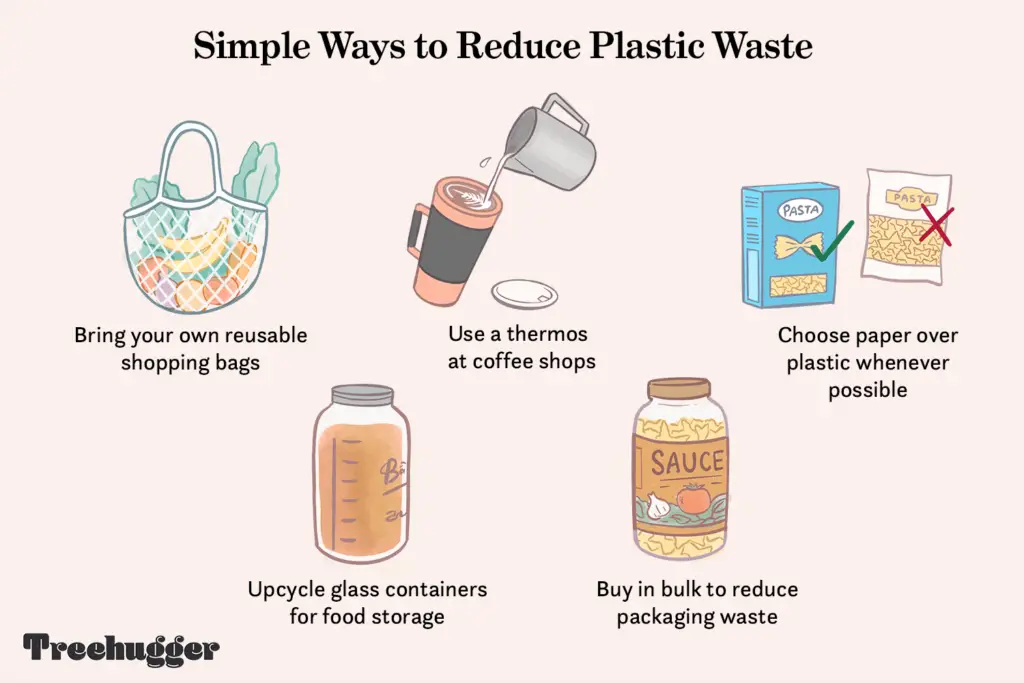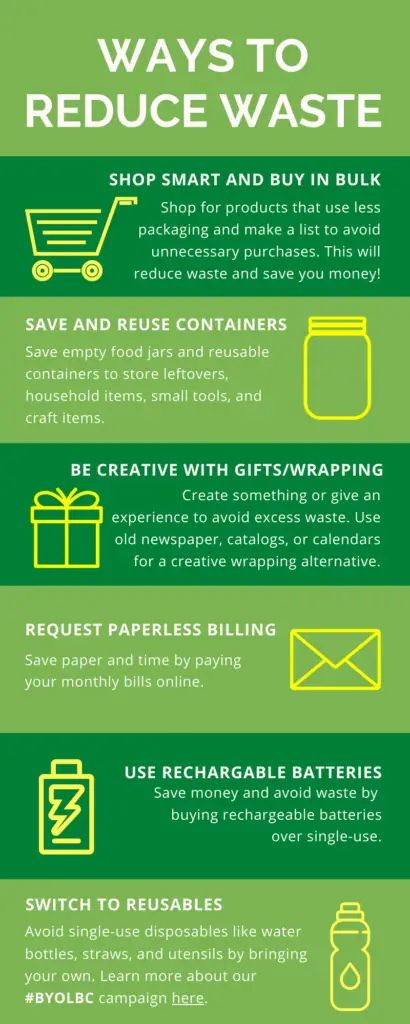Introduction
Welcome to Frugal Dude! As someone who is passionate about living a frugal lifestyle, I want to share with you some valuable tips on how to reduce household waste. By implementing simple and practical strategies, you can not only save money but also contribute to a more sustainable environment.
What is frugal living?
Frugal living is all about making conscious choices to maximize your resources while minimizing waste. It is about being mindful of your spending habits, embracing minimalism, and finding creative ways to save money. By adopting this lifestyle, you can prioritize what truly matters and avoid unnecessary expenses.
Why is reducing household waste important?
Reducing household waste is a crucial aspect of frugal living because it allows you to save money while simultaneously benefiting the environment. By minimizing waste, you can cut down on unnecessary expenses such as buying excessive products or disposing of items prematurely. Additionally, reducing waste reduces the strain on natural resources and minimizes pollution.
Benefits of frugal living
Frugal living offers numerous benefits beyond saving money. When you reduce household waste, you also reduce your ecological footprint. You become more aware of your consumption habits and develop a sense of responsibility towards the environment. Additionally, frugal living encourages creativity and resourcefulness, as you learn to make the most out of what you already have.
frugal living is not about deprivation or sacrifice, but rather about making intentional choices that align with your values and priorities. By reducing household waste, you can save money, contribute to a sustainable future, and improve your overall well-being. Stay tuned for the upcoming sections where I will provide you with practical tips and strategies to help you achieve a frugal and waste-free home.
Understanding Frugal Living
Frugal living is a lifestyle choice that focuses on reducing expenses and making economical choices in everyday life. It involves being mindful of our spending habits, maximizing the use of resources, and avoiding unnecessary waste. As a frugal individual, I have searched for ways to reduce household waste and I would like to share my insights with you.
Definition of frugal living
Frugal living is about finding creative solutions to minimize spending without sacrificing quality of life. It’s not about being cheap or depriving oneself; rather, it’s about making economical choices that align with our values and priorities. By adopting a frugal lifestyle, we can save money, reduce our environmental impact, and have a more sustainable future.
Principles of frugal living
The key principles of frugal living are budgeting, resourcefulness, and sustainability. Budgeting involves tracking expenses, setting financial goals, and making informed decisions about where to allocate our resources. Resourcefulness means making the most out of what we already have, reusing items instead of buying new ones, and finding alternative uses for everyday objects. Lastly, sustainability is at the core of frugal living, as it encourages us to think about the long-term effects of our choices and to prioritize eco-friendly options.
How frugal living differs from minimalism
While frugal living and minimalism share some similarities, they are not synonymous. Frugal living focuses on reducing expenses and waste, while minimalism emphasizes simplifying one’s life by owning fewer possessions. Frugal living is about making smart financial choices and being mindful of our consumption, whereas minimalism is more about decluttering and finding joy in a minimalist lifestyle. However, it’s important to note that these two concepts can complement each other, as embracing minimalism can often result in financial savings and reduce waste as well.
By understanding the principles of frugal living, we can make conscious choices to reduce household waste and save money. In the following sections, I will provide practical tips and strategies for implementing frugal living practices in various aspects of our lives. So, let’s dive in and discover the ways we can embrace a more frugal and sustainable lifestyle!

Identifying Household Waste
Common sources of household waste
When it comes to frugal living, one of the key aspects is reducing household waste. By being mindful of the things we consume and how we dispose of them, we can make a significant impact on both our wallets and the environment. In this article, I will highlight some common sources of household waste and provide practical tips on how to minimize them.
Food waste and composting
Food waste is a major contributor to household waste. To avoid this, I have adopted a few simple habits. Firstly, I plan my meals and shop accordingly, avoiding unnecessary purchases that often go to waste. Additionally, I try to utilize leftovers creatively, turning them into delicious new meals. However, when food waste is unavoidable, composting becomes a valuable solution. By creating a compost pile in my backyard, I can recycle food scraps and turn them into nutrient-rich soil for my garden.
Paper and plastic waste
Excessive paper and plastic usage is another area where frugal living can help reduce waste. I have made a conscious effort to minimize my reliance on single-use items like plastic bags, straws, and paper napkins. Instead, I carry reusable bags and stainless steel straws with me, and opt for cloth napkins at home. Moreover, I have switched to digital billing and receipts to reduce paper waste.
Energy and water waste
Conserving energy and water is not only beneficial for your wallet, but it also helps in the conservation of our planet’s resources. Simple actions like turning off lights when not in use, using energy-efficient appliances, and installing low-flow showerheads can significantly reduce energy and water waste in your home.
By taking small steps to identify and address these common sources of household waste, we can all contribute to a more frugal and sustainable lifestyle. Let’s be mindful of our actions and make a positive impact on our finances and the environment.
Smart Grocery Shopping
Creating a shopping list
When it comes to reducing household waste, smart grocery shopping is key. One tip that has worked wonders for me is creating a shopping list before heading to the store. By knowing exactly what I need, I am able to avoid unnecessary purchases and potential food waste. Take inventory of your pantry, fridge, and freezer before making the list to ensure you only buy what you truly need.
Meal planning and reducing food waste
Meal planning plays a significant role in reducing household waste. By planning meals in advance, I am able to buy the right ingredients in the right quantities, reducing the chances of food spoilage. I tend to focus on using up ingredients that are nearing their expiration dates, which helps to minimize waste. Additionally, I incorporate leftovers into future meals to make the most out of every ingredient.
Buying in bulk and using reusable containers
Buying in bulk has been a game-changer in my journey towards a more frugal and waste-free lifestyle. Not only does it save money in the long run, but it also reduces packaging waste. I invest in reusable containers for storing items bought in bulk, such as rice, pasta, and snacks. This way, I can avoid single-use packaging and keep my pantry organized.
Shopping at local farmers’ markets
Shopping at local farmers’ markets has numerous benefits. Firstly, it supports local farmers and the community. Secondly, it allows me to purchase fresh, seasonal produce without excessive packaging. Many farmers’ markets also offer the option to bring your own bags or containers, reducing the need for disposable bags. Plus, the produce tends to be fresher and more flavorful, making it a win-win situation.
By implementing these smart grocery shopping strategies, I have significantly reduced the amount of waste produced in my household. Not only does it align with my frugal lifestyle, but it also brings me satisfaction knowing that I am making a positive impact on the environment. So, next time you head to the store, remember to create a shopping list, embrace meal planning, buy in bulk, and support your local farmers’ markets. You’ll be amazed at the difference it can make.

Reducing Paper Waste
Transitioning to digital documents
One easy and effective way to reduce paper waste in your household is by transitioning to digital documents. Instead of printing out important papers or documents, consider storing them digitally on your computer, smartphone, or tablet. Digital organization can make it much easier to find and retrieve important files without the need for excessive paper clutter. Additionally, many organizations now offer digital copies of bills, statements, and receipts, allowing you to opt out of paper versions entirely.
Using cloth napkins and towels
Investing in cloth napkins and towels can also significantly reduce paper waste in your home. Instead of using disposable paper napkins or paper towels, opt for reusable cloth alternatives. Not only are cloth napkins and towels more sustainable, but they also add a touch of elegance to your dining table. When they get dirty, simply toss them in the washing machine and they’re ready to use again. This small change can make a big difference in reducing your household’s paper waste.
Opting for paperless billing and online subscriptions
Another way to minimize paper waste is by opting for paperless billing and online subscriptions. Many companies now offer the option to receive your bills, statements, and invoices electronically. By enrolling in paperless billing, you can help eliminate the need for physical paper copies. Additionally, consider subscribing to magazines and newspapers online instead of receiving physical copies. Digital subscriptions not only reduce paper waste but also give you instant access to the latest issues and articles.
By implementing these simple yet effective strategies, you can easily reduce paper waste in your household. Transitioning to digital documents, using cloth napkins and towels, and opting for paperless billing and online subscriptions are all small changes that can add up to make a significant impact. So why not take a step towards a more frugal and sustainable lifestyle today? Your wallet and the environment will thank you!
Minimizing Plastic Waste
Using reusable water bottles and coffee cups
One simple yet effective way to reduce plastic waste in your household is by using reusable water bottles and coffee cups. Instead of relying on single-use plastic bottles for your hydration needs, invest in a durable and refillable water bottle. Similarly, instead of grabbing a disposable coffee cup on your way to work, opt for a reusable one that you can easily bring with you. This small change not only helps to decrease the amount of plastic waste generated but also saves you money in the long run.
Avoiding single-use plastic bags
Another way to minimize plastic waste is by avoiding single-use plastic bags whenever possible. Get into the habit of carrying your own reusable shopping bags when you go grocery shopping or running errands. These bags are sturdy, environmentally friendly, and can be used repeatedly. By doing so, you reduce the demand for single-use plastic bags and contribute to a greener future.
Choosing eco-friendly alternatives
When it comes to household products, opting for eco-friendly alternatives can significantly reduce waste. For instance, instead of purchasing cleaning products in plastic bottles, consider using homemade or refillable options. Additionally, switch to cloth napkins and towels instead of disposable paper alternatives. These small changes not only help reduce waste but also save you money over time.
Recycling and repurposing plastic items
Properly recycling and repurposing plastic items is crucial in reducing household waste. Educate yourself about the recycling guidelines in your area and make a conscious effort to separate plastic items from your regular trash. Additionally, look for creative ways to repurpose plastic containers or packaging. For example, you can use empty coffee tins as storage containers or turn plastic bottles into planters for your indoor garden. By finding new uses for plastic items, you extend their lifespan and divert them from landfills.
by implementing these simple tips, you can significantly reduce plastic waste in your household and contribute to a more sustainable lifestyle. Remember, every small change matters, and collectively, we can make a difference in protecting our environment for future generations.
Energy and Water Conservation
Lowering thermostat settings
One effective way to reduce household waste is by adjusting the thermostat settings to conserve energy. During the colder months, I lower the thermostat by a few degrees, ensuring I am still comfortable but not wasting unnecessary heat. By doing this, I not only save on my energy bills, but also reduce my carbon footprint. It’s a win-win situation!
Switching to energy-efficient appliances
Another step I took to be more frugal and reduce waste was switching to energy-efficient appliances. These appliances are designed to use less energy while still providing the same level of functionality. Not only do they help conserve energy, but they also contribute to long-term savings on electricity bills. Upgrading to an energy-efficient refrigerator, dishwasher, or washing machine can make a significant difference in reducing household waste.
Installing low-flow faucets and showerheads
Water conservation is equally important when it comes to reducing household waste. To tackle this issue, I installed low-flow faucets and showerheads throughout my home. These fixtures help restrict the amount of water flowing out, without compromising on water pressure. By using less water, not only am I conserving a precious resource, but I am also reducing my water bills.
Conserving water during daily activities
In addition to using low-flow fixtures, there are several practices I incorporate into my daily routine to conserve water. I make sure to turn off the tap while brushing my teeth or lathering my hands with soap. I also collect excess water from washing fruits and vegetables to water my indoor plants. Small changes like these significantly reduce water wastage, making a positive impact on both the environment and my wallet.
By implementing these energy and water conservation techniques, I have been able to successfully reduce household waste and live a frugal lifestyle. Lowering thermostat settings, switching to energy-efficient appliances, installing low-flow faucets and showerheads, and conserving water during daily activities have all contributed to a more sustainable and economical home. So why not give them a try and start reaping the benefits today!

Repurposing and Upcycling
Finding creative ways to reuse items
One of the key principles of frugal living is maximizing the use of items and reducing waste. Instead of giving into the throwaway culture, I always try to find creative ways to repurpose and reuse items that would otherwise end up in the trash. It not only helps me minimize waste but also saves me money in the long run.
Upcycling old furniture and clothing
When it comes to reducing household waste, upcycling old furniture and clothing is a fantastic way to give new life to items that are no longer in use. Rather than buying new furniture or clothing, I enjoy the challenge of revamping and transforming old pieces. For example, I’ve turned an old wooden bookshelf into a stylish shoe rack by sanding, painting, and adding some hooks. Not only did I save money on buying a new shoe rack, but I also gave a tired piece of furniture a fresh purpose.
Donating or selling unwanted items
Another effective strategy I use to reduce household waste is to donate or sell unwanted items. Instead of keeping things that I no longer need or use, I pass them on to someone who may find them useful. This not only clears up space in my home but also helps me contribute to a more sustainable and eco-friendly lifestyle. Additionally, if the items are in good condition, I choose to sell them online or at a garage sale, allowing me to make some extra money in the process.
by embracing the concept of repurposing and upcycling, and by donating or selling unwanted items, I have successfully minimized household waste. These simple yet effective strategies not only bring a new sense of purpose and creativity to my home but also align with my frugal lifestyle goals. So why not give them a try and see how they can help you reduce waste and save money too?

Composting and Organic Waste
Setting up a composting system
Composting is an excellent way to reduce household waste and create nutrient-rich soil. Setting up a composting system is simple and can be easily done in your backyard or even on your apartment balcony. Start by finding a compost bin or container that is suitable for your needs. There are many options available, ranging from DIY bins made out of old pallets to commercially available composters. Place your bin in a convenient and accessible location, preferably a spot that receives partial sunlight.
Next, gather organic waste such as vegetable trimmings, coffee grounds, eggshells, and yard clippings to add to your compost. Avoid adding meat, dairy products, or oily items that may attract pests. Layer the organic waste with dry materials such as leaves or shredded newspaper to maintain the proper balance of carbon and nitrogen. Turn the pile regularly to aerate it and speed up the composting process. Within a few months, you will have rich, dark compost ready to use in your garden.
Benefits of composting
Composting offers numerous benefits for both your wallet and the environment. Firstly, it reduces the amount of waste sent to landfills which helps to minimize greenhouse gas emissions. Additionally, composting reduces the need for chemical fertilizers as the compost provides essential nutrients to plants naturally.
Another great benefit is the cost savings. By composting, you can produce your own high-quality soil amendment for free instead of purchasing expensive commercial fertilizers. Furthermore, using compost can improve soil structure, water retention, and overall plant health, leading to healthier gardens and landscapes.
Using compost in gardening and landscaping
Once your compost is ready, it’s time to put it to use! Mix the compost into the soil when planting new flowers, vegetables, or shrubs. The organic matter in the compost will help improve soil fertility and drainage, promoting healthy root growth.
Compost can also be used as a mulch to insulate and protect plant roots while conserving moisture in the soil. Apply a layer of compost around existing plants to suppress weeds, prevent erosion, and reduce the need for watering.
composting is a simple and effective way to reduce household waste and reap the benefits both financially and environmentally. By setting up a composting system, you can divert organic waste from landfills, cut down on the need for chemical fertilizers, and improve the health of your garden. So why not give it a try and start composting today? Your plants and your wallet will thank you!
Smart Cleaning Practices
One of the key aspects of frugal living is finding ways to reduce household waste. In this section, I will share some smart cleaning practices that can help you minimize waste and save money.
Making homemade cleaning solutions
When it comes to cleaning your home, you don’t always need to rely on expensive commercial cleaning products. In fact, many effective cleaning solutions can be made using common household items. For example, a mixture of vinegar and water can be used as an all-purpose cleaner, while baking soda works wonders for removing stains and odors. By making your own cleaning solutions, you not only save money but also reduce the amount of plastic waste that is often associated with store-bought cleaners.
Using eco-friendly cleaning products
If you prefer using commercial cleaning products, consider opting for eco-friendly options. These products are typically made from natural and biodegradable ingredients, which are better for both your health and the environment. Look for labels that indicate they are free from harsh chemicals and are packaged in recyclable materials. By choosing eco-friendly cleaning products, you contribute to reducing the accumulation of harmful substances in our waterways and landfills.
Reducing the use of paper towels and wipes
Paper towels and disposable wipes may be convenient, but they contribute significantly to household waste. Instead of relying solely on these single-use items, try to incorporate reusable alternatives into your cleaning routine. Microfiber cloths are highly effective for dusting and cleaning different surfaces, and they can be easily washed and reused multiple times. Additionally, using washable mop pads or sponges instead of disposable mop refills helps to reduce waste while achieving the same cleaning results.
Proper waste disposal for cleaning materials
When it comes to disposing of cleaning materials, it’s important to follow proper waste disposal guidelines. Many cleaning products contain chemicals that can be harmful to the environment if not disposed of correctly. Check with your local waste management facility for instructions on how to safely dispose of these items. By doing so, you ensure that these materials do not end up in landfills or pollute our water sources.
By incorporating these smart cleaning practices into your daily routine, you not only reduce household waste but also save money in the process. So, why not give them a try and join the frugal living movement? Start making your own cleaning solutions, opt for eco-friendly products, reduce paper towel usage, and properly dispose of cleaning materials. Together, we can make a positive impact on the environment while embracing a more frugal lifestyle.

Engaging the Community
Sharing tips and ideas with others
Reducing household waste and embracing a frugal lifestyle is not only a personal journey but also a chance to engage with the community and make a positive impact. By sharing tips and ideas with others, we can collectively work towards a more sustainable future. One way to do this is by utilizing the power of the internet. On my website, frugaldude.org, I encourage readers to join the community discussion board where individuals from all walks of life share their experiences, suggestions, and innovative practices for reducing waste. This platform serves as a hub of knowledge, fostering a sense of camaraderie among frugal enthusiasts.
Joining local environmental initiatives
Another excellent way to engage the community in reducing household waste is by actively participating in local environmental initiatives. Many towns and cities have organizations or groups specifically dedicated to promoting sustainable practices. By joining these initiatives, we can attend workshops, lectures, and seminars that focus on waste reduction and sustainable living. Additionally, these organizations often host events such as recycling drives, tree planting campaigns, and neighborhood clean-ups, providing us with an opportunity to come together and make a tangible difference in our surroundings.
Participating in neighborhood swaps and exchanges
One exciting trend within the frugal living community is the rise of neighborhood swaps and exchanges. These events bring together individuals and families within a neighborhood to exchange unwanted items, such as clothing, furniture, books, and even homegrown produce. This not only promotes waste reduction by reusing and repurposing items but also fosters a sense of community spirit. Participating in these swaps not only helps you find new treasures for your home but also allows you to connect with your neighbors and build long-lasting relationships.
By engaging with the community, whether through online platforms, local initiatives, or neighborhood swaps, we can create a support system that encourages and empowers individuals to lead more frugal and sustainable lives. Together, we can learn from one another, inspire change, and make a collective impact in reducing household waste. So let’s embrace the power of community and join hands in creating a more sustainable future for us and generations to come.
Conclusion
Final thoughts on frugal living and waste reduction
In conclusion, adopting a frugal lifestyle not only helps us save money but also plays a crucial role in reducing household waste. By implementing the tips and strategies discussed in this article, we can make a positive impact on the environment and promote sustainability.
One of the key takeaways from frugal living is the importance of mindful consumption. By being mindful of our purchases, we can avoid unnecessary items and reduce the accumulation of waste in our homes. This means carefully considering whether we truly need a particular product before making a purchase.
Furthermore, by embracing the concept of reusing and repurposing, we can significantly reduce our household waste. Rather than disposing of items that are still in good condition, we can find creative ways to give them a new lease on life. This can involve upcycling old furniture, finding new uses for containers or jars, or even donating unwanted items to charity.
Another aspect of frugal living that contributes to waste reduction is the practice of buying in bulk. By purchasing items in larger quantities, we can minimize excessive packaging and reduce the number of trips we need to make to the store. This not only saves us time and money but also reduces the amount of waste generated from packaging materials.
Finally, maintaining a minimalist lifestyle can greatly contribute to waste reduction. By decluttering our homes and keeping only the essentials, we can avoid unnecessary purchases and have a better sense of what we truly need. This mindset shift allows us to be more conscious consumers and promote a more sustainable future.
In conclusion, by adopting frugal living habits and implementing the strategies discussed in this article, we can reduce household waste, save money, and live a more sustainable and mindful lifestyle. Let’s take small steps towards being more frugal and making a positive impact on the environment.

